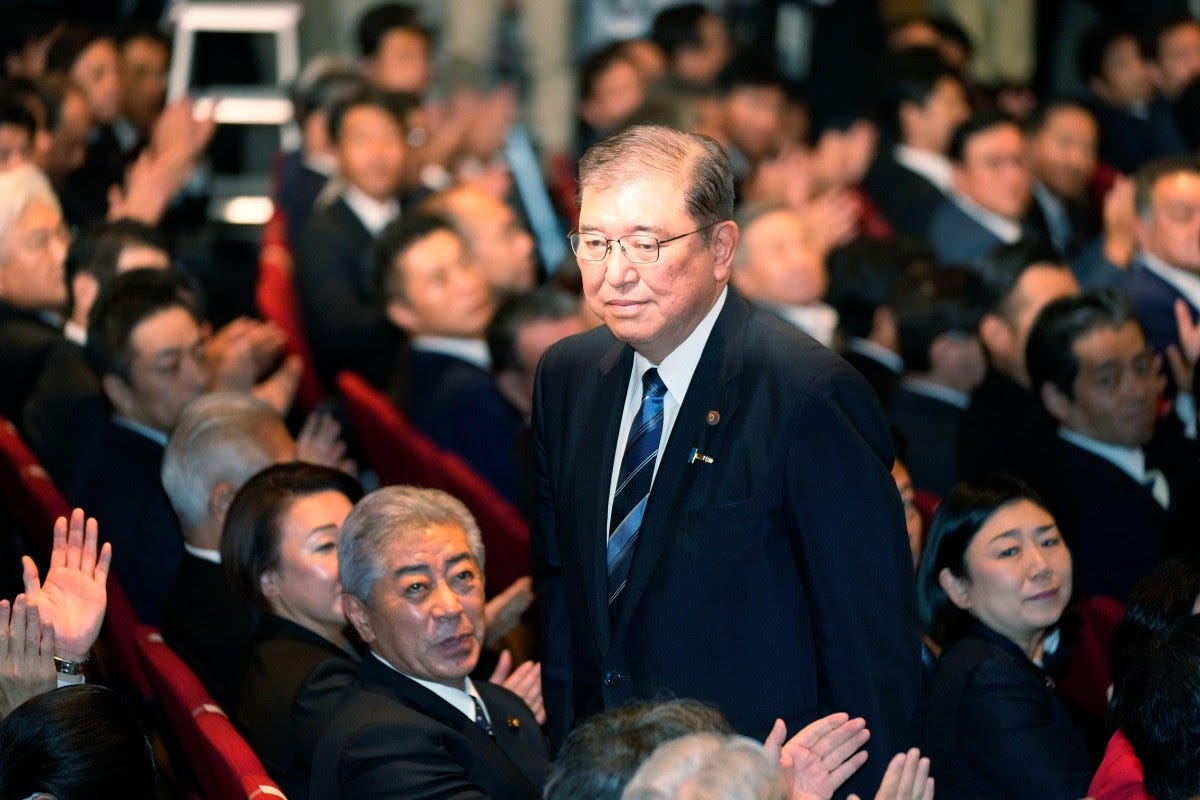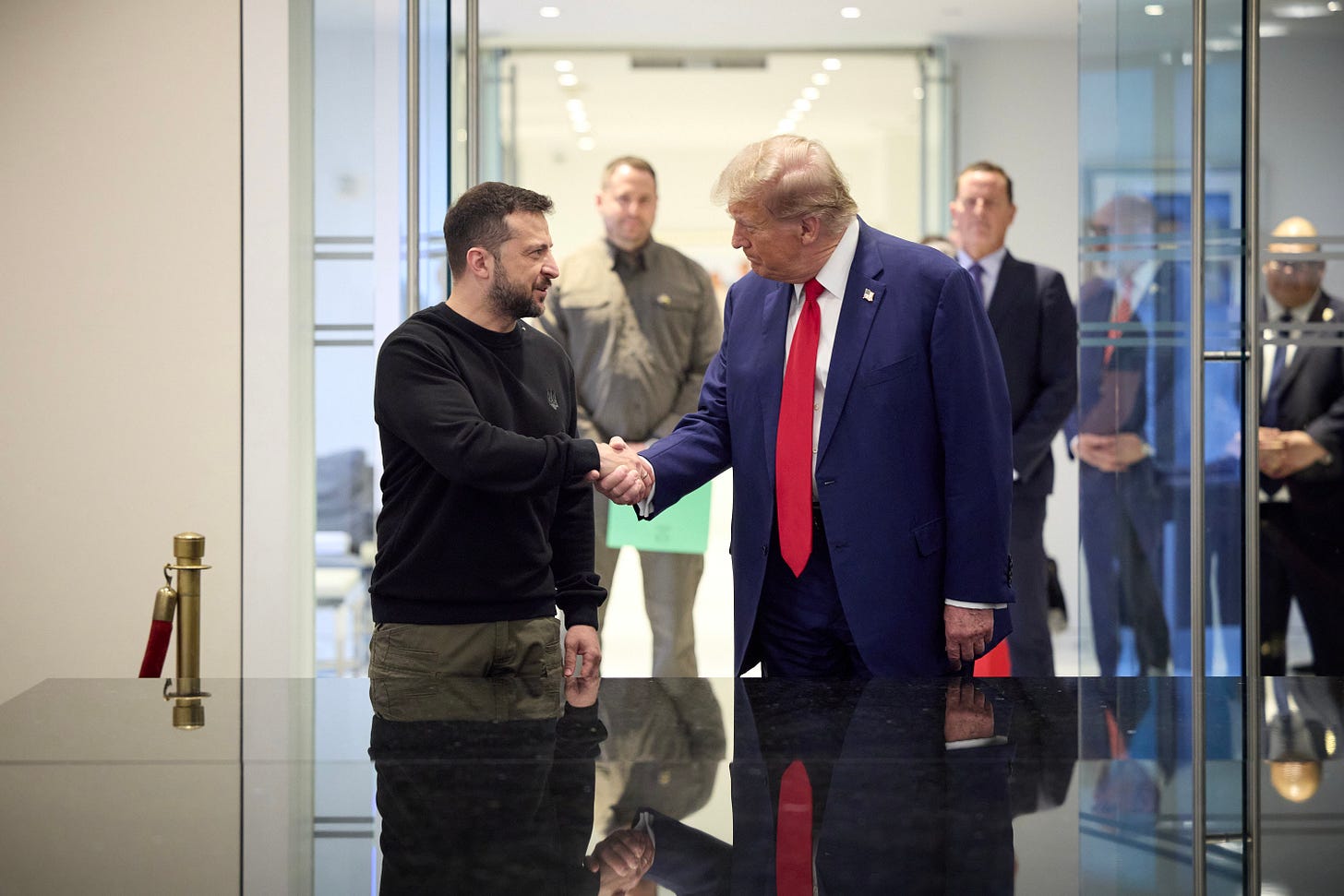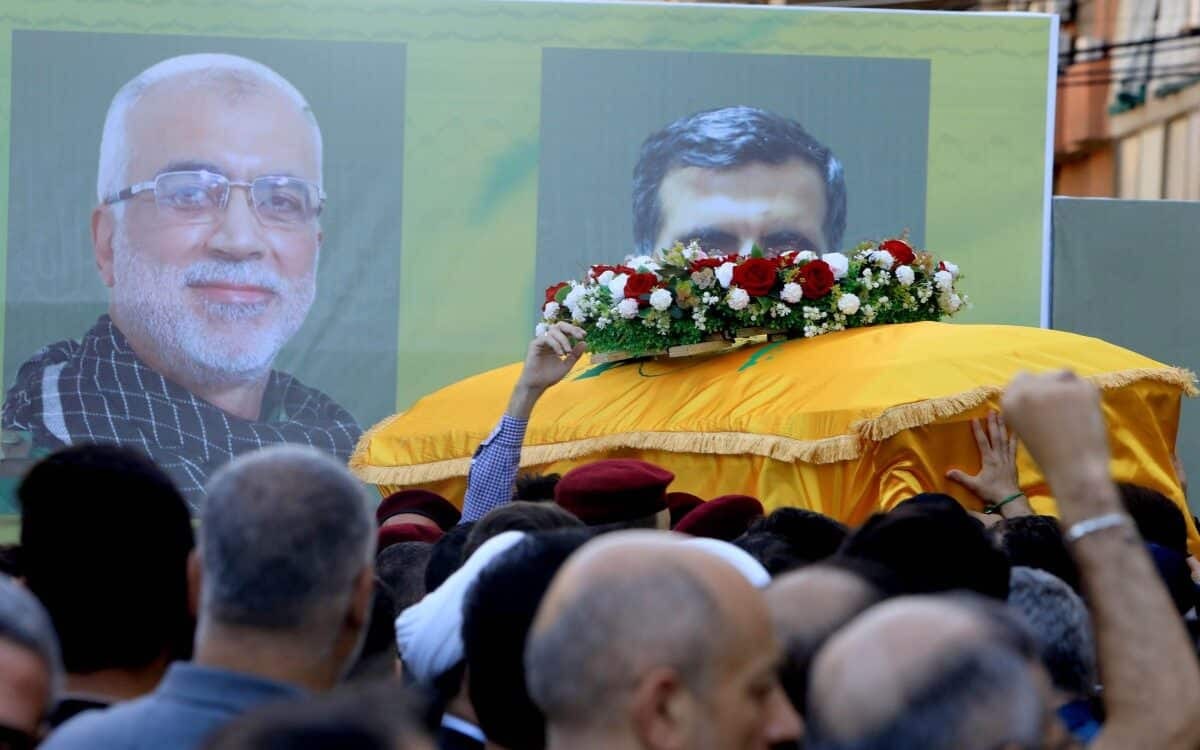What Japan's new leader means for the world
We can expect Tokyo to continue its deliberate move away from post-war pacifism under Shigeru Ishiba's rule.
Japan elected a new leader today, the hawkish, so-called “military geek” Shigeru Ishiba, signalling that we can expect the country to continue its deliberate move away from post-war pacifism.
It’s fifth time lucky for 67-year-old Ishiba, a former defence minister and moderate conservative, who has finally been elected to head Japan’s ruling Liberal Democratic Party (LDP) following several unsuccessful past leadership bids.
He will take over from outgoing Prime Minister Fumio Kishida, who has chosen to step down after being embroiled in a corruption scandal within the LDP, the party which has governed Japan almost interrupted for decades.
Japan’s new PM will face big domestic challenges, namely rescuing the plummeting currency of the world’s fourth largest economy. Today, the yen recovered some earlier losses following the victory of Ishiba, who is seen as a critic of Japan’s past aggressive monetary stimulus.
As for foreign policy, Ishiba’s appointment will likely mean a continuation of the outgoing Kishida’s approach. Though, in defence terms, this continuity means pressing ahead with the big changes already afoot.
Over the past three years of Kishida’s leadership, Japan - America’s closest Pacific ally - has undergone more change in its foreign policy posture than at any other time since the Second World War. It has doubled its defence spending over five years to 2 per cent of GDP and disavowed pacifism by setting aside decades of self-imposed restraints on its own military.
Some fairly menacing neighbours explain the change of tack.
Not only is Tokyo contending with an increasingly assertive China, it also has North Korea to worry about, with Kim Jong Un flexing his growing nuclear weapons stockpile, and liberally firing tests towards the sea of Japan.
As a result, Tokyo is not only beefing up its own defences but strengthening military alliances too. Not just with Washington but with other US allies in the Indo-Pacific region too: the Philippines and Australia and even South Korea too, despite their fraught bilateral history.
Ishiba has long pushed for a more robust Japanese defense posture, and he has already riled up China by calling for Japan to lead the creation of an “Asian version of NATO”.
Though Ishiba is not the candidate who would have upset Beijing the most. His opponent Takaichi - who would have become Japan’s first female prime minister had she prevailed - is even more hawkish on China.
Takaichi has claimed that she would visit the infamous Yasukuni Shrine - a symbol of Japan’s wartime aggression that is a highly sensitive issue in Sino-Japanese relations - thus laying a dangerous potential flashpoint for Japan's relations with its Asian neighbours. Some in Tokyo were fearful that her highly aggressive stance towards Beijing would have inflamed tensions to an unnecessarily risky degree.
Ishiba, while a little more moderate than Takaichi in his stance, is expected to continue Kishida’s policy orientation of aligning with the US to contain China and voicing support for Taiwan’s democracy.
That said, any continuation will depend on enduring cooperation from Washington too.
At the UN this week, Kishida used his final speech to urge the US not to retreat inwards and abandon its global responsibilities.
“The international community is at a historical inflection point,” he warned, adding: “Today’s Ukraine could be East Asia tomorrow”.
Caitlin Allen
Deputy Editor
ON REACTION TODAY
The Editorial Board
Ukraine's survival depends on America and the West
Tim Marshall
Escalate to de-escalate: Israel's high-risk strategy against Hezbollah
Jenny Hjul
Do former politicians deserve their plum roles?
ALSO ON REACTION
Stick to the knitting: Philip Morris’s expensive mistake Neil Collins
Stop and Look: Saint Jerome in his study by Antonello da Messina Andrew Wilton
Grounded at the Met: Tesori’s score is wonderful Gerald Malone
ALSO KNOW
Israel strikes Beirut — This afternoon, Israel launched its heaviest air attack on the Lebanese capital in almost a year of conflict with Hezbollah, levelling a number of buildings in a southern suburb in what Israeli media is reporting as an attempt to kill Hezbollah’s leader, Hassan Nasrallah. Following the strike, vast plumes of smoke were visible from as far as Batroun, a city an hour’s drive away. The Lebanese health ministry said two people were killled in the attack and 76 were injured, with more casualties expected as rescue workers clear rubble.
Russell Findlay appointed Scottish Conservative leader — Russell Findlay has won the Scottish Conservatives’ leadership election, beating Murdo Fraser and Meghan Gallacher. He has pledged to represent those who are “scunnered” with the “fringe obsessions of the Scottish Parliament”.
Dame Maggie Smith dies, aged 89 — Dame Maggie’s son has confirmed that the actress, best known for her roles in Harry Potter and Downton Abbey, died peacefully in hospital this morning. Fellow actor Hugh Bonneville says she was a “true legend of her generation”.
Just Stop Oil activists throw soup on painting again – Two activists - Phoebe Plummer, 23, and Anna Holland, 22, have been given a jail sentence of two-years and 20 months respectively, for throwing soup over Vincent Van Gough's "Sunflowers". Hours after the news of this morning's sentences broke, three more protesters threw soup over two Van Gough artworks. The Metropolitan Police have said that they are holding the individuals on suspicion of causing criminal damage and inquiries are continuing.
FIVE THINGS
Curated by the Reaction Team - Will Martin
1. Starmer’s quest for control is a fool’s errand. Marc Sidwell in CapX.
2. On Monday, Britain will become the first major developed country to end the use of coal. This is the story of how we got here – and what the future holds. Adam Vaughan and Matilda Davies in The Times.
3. Is confronting Hezbollah or de-escalating likelier to bring peace? Emma Ashford and Matthew Kroenig in Foreign Policy.
4. Irish neutrality is unsustainable. Elisabeth Braw in Engelsberg Ideas.
5. What will the Spectator look like with "arch schemer’"Gove at the helm? Alan Rusbridger in Prospect.









